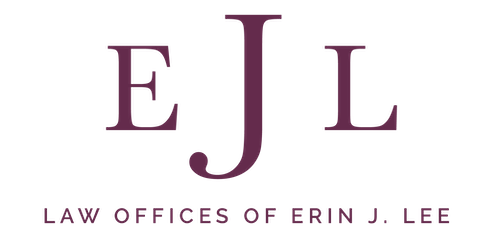VAWA: Immigration Relief in the Violence Against Women Act
- Home
- Immigration Services

Table of Contents
What is VAWA
The Violence Against Women Act was passed in 1993 and signed into federal law in 1994. Initially, it offered federal protection and services to victims of domestic abuse. Every five years, VAWA is reauthorized by Congress. Each time it’s reauthorized, so far, more protections are added.
In 2013, Congress added immigration benefits for certain victims of domestic abuse to the federal law. Before this change, an abusive family member could threaten to withhold visa sponsorship or withdraw a family-based immigrant visa petition to keep their victims silent. The update to the law offers certain victimized family members of U.S. Citizen or green card holders the hope of freedom.
Now, these victims of domestic abuse can apply for a unique classification recognized by U.S. Citizenship and Immigration Services (USCIS). USCIS refers to the classification of noncitizens as VAWA self-petitioners.
If USCIS grants a victim this special classification, they gain the right to apply for life-changing immigration benefits without their abuser’s help.
Benefits for a VAWA self-petitioner include:
- The ability to request a deferment of removal proceedings
- The ability to apply for an immigrant visa
- The opportunity to apply for work authorization
If a victim’s petition for this unique classification is approved, they can seek these immigration benefits through their family relationship with their abuser, but without notifying or involving the abuser.

Fill Out The Form Below To Schedule A Consultation.
Immigration Services
Request A Consultation Today To Discuss Your Options!
Who Is Eligible for VAWA Self-Petitioning?
You may be eligible to file for VAWA self-petitioner classification if you are one of the following:
- The spouse of an abusive U.S. citizen or lawful permanent resident
- The child of an abusive U.S citizen or lawful permanent resident
- The parent of an abusive U.S. citizen who is at least 21 years old
It’s important to work with an attorney experienced in immigration law, because the process is complicated.
This type of petition needs to be done properly, because for victims of abuse, the stakes are so high.

VAWA Self-Petitioning Abused Spouse
You may qualify if you were abused by your spouse and your spouse is a U.S. citizen or permanent resident. If your spouse didn’t abuse you, but abused your child, you might also qualify.
If you are no longer legally married, you may still be eligible as a VAWA self-petitioning spouse if you were abused during your marriage and one of the following is also true:
- Your spouse was a U.S. citizen, but they died within the past two years
- Your marriage ended in divorce within the past two years because of the abuse
- You thought you were legally married, but your marriage was not legal because your abuser was already legally married to someone else
It’s also possible to be eligible if your spouse is no longer a U.S. citizen or lawful permanent resident under certain circumstances. If this is your situation, your lawyer can help you figure out if you may still be eligible for immigration benefits under VAWA.
VAWA Self-Petitioning Abused Child
You may qualify if one of your parents abused you and all the following are true:
- Your abusive parent is a U.S. citizen or permanent resident
- You are under 21 and unmarried or are between 21 and 25 and can prove that you delayed filing because of the abuse
If you are eligible as the child of an abuser, then your own children may also be eligible through your petition.
VAWA Self-Petitioning Abused Parent
You may be eligible if you were abused by your child and both the following are true:
- Your child is a U.S. citizen
- Your child is over 21 years old
Other Requirements for VAWA Self-Petitioner Classification
To be eligible for VAWA self-petitioner benefits, you also must be able to show evidence of a few other specific eligibility requirements.
- To meet the definition of abuse, you must have been subjected to extreme cruelty or battery
- If the abuser is your spouse, the abuse happened during the relationship
- You live with or previously lived with your abuser
- You are of good moral character yourself
Request A Consultation Today To Discuss Your Options!
How to Apply for VAWA Immigrant Benefits
There are multiple steps you must take depending on the immigration benefits you are seeking. The first step, though, will be to submit Form I-360, Petition for Amerasian, Widow(er), or Special Immigrant so that you can be classified as a VAWA self-petitioner.
Your attorney will make sure your Form I-360 is filed with all required supporting evidence and documentation. It’s important that your attorney is familiar with the complexities of VAWA immigration law.
Form I-360 approval means that you have the right to apply for certain other benefits offered by USCIS as a self-petitioner. Form I-360 approval doesn’t automatically grant you or your qualified dependents an immigrant status.
It only provides you with an immigrant classification, but an approved Form I-360 is a major victory. With the approval, you get the right to apply for work authorization and a green card. If needed, it may also allow you to be considered for deferred action to avoid deportation on a case-by-case basis.


VAWA Immigration FAQs
Yes, your consultation and future discussions with your attorney are confidential.
The federal government does not charge a filing fee for VAWA petitions. The United States will not reimburse or pay for a petitioner’s attorney fees though.
It typically takes about one to three years for USCIS to process and approve immigrant visas after your Form I-360 is approved. Your lawyer can help you apply for a green card once you're allowed. If a visa is immediately available, your lawyer might file your petitions together.
About 70 percent of all VAWA-related Form I-360 petitions are approved. If you file without an attorney’s help, you won’t be shown any extra tolerance for filing mistakes just because you didn’t use a lawyer. Your petition must be filed properly, with all the correct documentation.
Without supporting documents and evidence, you won’t be able to prove that you qualify for VAWA self-petitioner classification. At the very least, you will want to include the following:
- Proof that the abuser is your child, parent or spouse
- Proof that you lived with your abuser
- Proof that you live in the United States
- Proof of your abuse
- Your personal statement
- Your passport or birth certificate
- Evidence that your abuser is either a U.S. citizen or a lawful permanent resident
- Police clearance records and affidavits from friends or family members showing you are of good moral character.
Unfortunately, many of these petitions are denied because of mistakes that could be prevented with an attorney’s help. The most common reasons for denial are incorrect documentation, errors on forms, missing deadlines, submission errors and missing evidence.
If you are outside the United States, you might still qualify to self-petition under VAWA, but you will need to go through consular processing. You will need to work with your local U.S. embassy or consulate. There are more eligibility requirements if you’re outside the United States in addition to those noted above. To qualify to self-petition one of the following must also be true:
- Your abusive relative is an employee of the U.S. government
- Your abusive relative is a member of the U.S. armed forces
- You were the victim of battery or extreme cruelty while you were in the United States.
Choosing an Experienced VAWA Immigration Attorney
If you are the victim of abuse and think that you may qualify for immigration relief under the Violence Against Women Act, make sure you consult with an experienced immigration attorney. The Law Offices of Erin J. Lee has offices in California and has helped clients all around the U.S. become classified as VAWA self-petitioners so that they can move forward free from their abusers.

